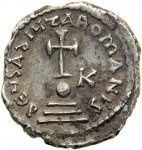- Joined
- Jan 29, 2014
- Messages
- 6,380
- Reaction score
- 2,187
- Location
- Brisbane, Qld. Australia
- Gender
- Male
- Political Leaning
- Centrist
Over extension. The collapse of the republic in favor of an empire. Rampant infighting. These are all reasons cited by scholars as catalysts for the fall of the greatest empire in history. However, an often overlooked factor is the widespread belief that such a collapse would happen. This belief ran most rampant among the ruling class, which was quite inopportune for the Roman people. The Roman historian Polybius popularized this disbelief in Roman success in his Histories published in the second century BCE. One passage from his work states "For this state, which takes its foundation and growth from natural causes, will pass through a natural evolution to its decay." He went on to say that this is "a proposition which scarcely requires proof, since the inexorable course of nature is sufficient to impose it on us." He might have merely meant that time would run its course and the Roman rule would pass as all rule does....but at the same time as he was publishing his work, other Roman intellectuals such as his contemporary Sallust were spreading the Platonic belief that all governments who do not mirror Plato's ideal republic would naturally fail at some point, the farther away from the ideal republic the quicker the collapse. Roman culture was steeped in Greek philosophy, and the words of Plato and Aristotle (despite their HUGE differences) were revered almost as law. It is ironic that as Rome grew in power, the skeptics prevalent in Roman politics viewed it as never being in worse shape. Cicero, seeing the looming downfall of Rome, attempted to shift the popular viewpoint of Rome's future into a more optimistic direction, while championing Aristotle's philosophy in place of that of Plato. He may have succeeded in delaying the downfall, but it seems Rome's fate was already sealed. Roman politicians viewed the inevitability of their republic's collapse as an excuse to seek power and live corruptly in the present. With such a pessimistic outlook, their morality deteriorated quickly.
Reading Roman sources one can always find a pessimistic individual that bemoans the decline of morality etc..(Plutarch, Suetonius inter alios), however, your sources are for the Republican period and do not take into account the heights achieved under the Imperial system. The Roman empire endured for centuries after Polybius and Cicero were long dead.
The Roman Empire finally fell with Mehmet taking Constantinople in 1453, and it had endured the Republic, invasions, financial and monetary crises, the Tetrarchy, the rise of Christianity and the loss of the city of Rome itself during its hegemony. It couldn't withstand the expansionist policies of the Islamic Turkic tribes, and it had little to do with any perceived notions of decadence and moral decline.
Furthermore, one cannot view the US as an imperialistic power in the true sense, and any perceived future loss of global influence can be more accurately compared to the fall of the British Empire after WWII, in that the over-extension was exposed during a period of financial crisis, as opposed to any ideological or moral failure.
Last edited:

